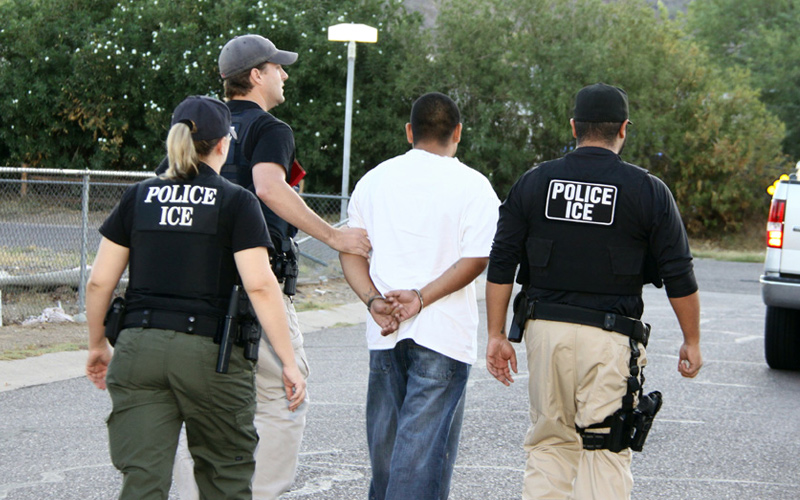Washington, DC – At three o’clock this afternoon,, USCIS Director Alejandro Mayorkas and senior members of Department of Homeland Security (DHS) held a telephonic conference to discuss the next steps in processing Obama’s dream. This conference is a follow up to Secretary Janet Napolitano’s June 15th memorandum, which directed DHS accepting requests for consideration of deferred action on August 15, 2012.
During the teleconference, Director Mayorkas provided a brief overview of the development of the process by which certain young people who came to the United States as children may request deferred action (the official name for Obama’s Dream Act).
USCIS Director Alejandro Mayorkas commented that
“over the past three years, this Administration has undertaken an unprecedented effort to transform the immigration enforcement system into one that focuses on public safety, border security and the integrity of the immigration system. As the Department of Homeland Security (DHS) continues to focus its enforcement resources on the removal of individuals who pose a danger to national security or a risk to public safety, including individuals convicted of crimes with particular emphasis on violent criminals, felons, and repeat offenders, DHS will exercise prosecutorial discretion as appropriate to ensure that enforcement resources are not expended on low priority cases, such as individuals who came to the United States as children and meet other key guidelines. Individuals who demonstrate that they meet the guidelines below may request consideration of deferred action for childhood arrivals for a period of two years, subject to renewal, and may be eligible for employment authorization.”
He clarified who may request deferred action under this program.
- Were under the age of 31 as of June 15, 2012;
- Came to the United States before reaching your 16th birthday;
- Have continuously resided in the United States since June 15, 2007, up to the present time;
- Were physically present in the United States on June 15, 2012, and at the time of making your request for consideration of deferred action with USCIS.
- Entered without inspection before June 15, 2012, or your lawful immigration status expired as of June 15, 2012;
- Are currently in school, have graduated or obtained a certificate of completion from high school, have obtained a general education development (GED) certificate, or are an honorably discharged veteran of the Coast Guard or Armed Forces of the United States; and
- Have not been convicted of a felony, significant misdemeanor, three or more other misdemeanors, and do not otherwise pose a threat to national security or public safety.
Othe Major Points Discussed
- On August 15, 2012, DHS will begin to accept requests for deferred action. However, the form that will be used for this program has not yet been prepared. No one should apply before tAugust 15, 2012 date or without the new application form.
- Individuals may begin to request consideration of deferred action for childhood arrivals on August 15, 2012. Please do not file before August 15. If you file early, your request will be rejected.
- Individuals who can demonstrate through verifiable documentation that they meet these guidelines will be considered for deferred action. Determinations will be made on a case-by-case basis under the guidelines set forth in the Secretary of Homeland Security’s memorandum.
- If approved, the applicant may obtain employment authorization from USCIS provided you can demonstrate an economic necessity for employment.
- Even those that are in removal (deportation) proceedings or have already been ordered deported may apply.
- If you are under 18 and you apply for deferred action, you will not accrue unlawful presence while the application is pending however, if you are over 18 you will accrue unlawful presence while the application is pending. If your case is deferred, you will not accrue unlawful presence during the period of deferred action. Having action deferred on your case will not excuse previously accrued unlawful presence.
- Deferred action does not confer any lawful status.
- There is a significant difference between “unlawful presence” and “unlawful status.” Unlawful presence refers to a period an individual is present in the United States (1) without being admitted or paroled or (2) after the expiration of a period of stay authorized by the Department of Homeland Security (such as after the period of stay authorized by a visa has expired). Unlawful presence is relevant only with respect to determining whether the inadmissibility bars for unlawful presence, set forth in the Immigration and Nationality Act at Section 212(a)(9), apply to an individual if he or she departs the United States and subsequently seeks to re-enter. (These unlawful presence bars are commonly known as the 3- and 10-Year Bars.)
- The fact that you are not accruing unlawful presence does not change whether you are in lawful status while you remain in the United States. Because you lack lawful status at the time DHS defers action in your case you remain subject to all legal restrictions and prohibitions on individuals in unlawful status.
- Deferred action is a form of prosecutorial discretion that does not confer lawful permanent resident status or a path to citizenship. Only the Congress, acting through its legislative authority, can confer these rights.
- The new process is open only to those who satisfy the guidelines. As such, immediate relatives, including dependents of individuals whose cases are deferred pursuant to the consideration of deferred action for childhood arrivals process, may not be considered for deferred action as part of this process unless they independently satisfy the guidelines.
- The Administration has consistently pressed for passage of comprehensive immigration reform, including the DREAM Act, because the President believes these steps are critical to building a 21st century immigration system that meets our nation’s economic and security needs.
- The Secretary’s June 15th memorandum allowing certain people to request consideration for deferred action is the most recent in a series of steps that DHS has taken to focus its enforcement resources on the removal of individuals who pose a danger to national security or a risk to public safety. Deferred action does not provide lawful status or a pathway to citizenship. As the President has stated, individuals who would qualify for the DREAM Act deserve certainty about their status. Only the Congress, acting through its legislative authority, can confer the certainty that comes with a pathway to permanent lawful status.
To read the entire text of the conference, go to www.idreamact.com









